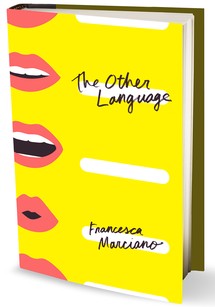The Other Language
By Francesca Marciano
304 pages;
Pantheon
The Heroines of Francesca Marciano's The Other Language take the kind of risks most of us have been conditioned to avoid. They reconnect with lost lovers, migrate to faraway lands, and forge liaisons beyond the bounds of their race, culture, and class. If they work, they generally gravitate toward artsy professions like writing and filmmaking—nothing associated with job security.' '
Marciano is an apt guide to these exotic lives, having lived on three continents and pursued serial careers as a filmmaker, a screenwriter, and a novelist. Not all of her protagonists endear themselves to the reader—some are whiners; others, liars—but she engages us so intimately with them, we do not tire even of their foibles. (They, on the other hand, often grow weary of one another.)' '
The title story establishes the cosmopolitan, faintly nostalgic atmosphere that permeates Marciano's prose. Emma, an Italian teen on a family holiday in Greece, devoutly hopes that by mastering English and strengthening her swimming skills she will one day attract Jack, a beguiling British boy vacationing at the same beach. Yet she discovers, first as an adolescent and then as an adult, that fluency in a language doesn't guarantee her yearnings will be heard, much less understood.' '
Frustrated communication, whether the consequence of a Skype encounter or a tête-à-tête, is a recurrent theme, as is the quest for the elusive person or place that allows one to feel at home. In Marciano's nuanced emotional universe, a foreigner is likely to consider herself an outsider no matter how long she's lived elsewhere—especially if she still dreams in her mother tongue.
— Amy Fine Collins


